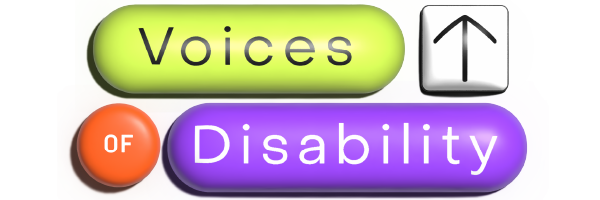Letter From The Editor: Disability Reaches All Relationships
Listen to this Story
Narrated by Kelly Dawson
00:00
The disabled community makes up one in four Americans, which means their lives are intertwined within the spectrum of all relationships. We’re focusing on the ways in which disability is intrinsic to everyday life, and how everyone is connected to it as part of the human experience.
When Refinery29 asked me to be the guest editor of Voices of Disability earlier this year — an honor I’ve had on four occasions now — they also gave me the task of coming up with a theme. I chose “relationships,” which seems simple enough. This year’s lineup features stories on friends, romance, and motherhood, plus the community that surrounds it all. These are the facets that make up every life, including for those living with disabilities.
AdvertisementADVERTISEMENT
Yet, like any bond, the most interesting parts are beneath the surface.
Lately I’ve thought a lot about the strings that tie us together. In theory, we all know we’re infinitely linked. Everyone is intertwined in a big-picture way where we’re all more alike than we think and blah blah blah. This is not usually how it goes in practice. In practice, differences can shut you out. A disability is something that happens to someone else, which is taking place over there. And if it is seen in public, it’s just sad. It’s entirely disarming. It’s… still separate.
When you’re “different,” when you’re the person who stands out from the crowd, it’s often up to you to explain why. Why do you act like that? Why do you do it this way instead of that way? Why is there a distinction to take into account? Sometimes this request isn’t worded but instead delivered in stares and tones and tension. In these essays, each writer shares how all types of relationships shift in the presence of disability, for better or worse. Deciding the best way to disclose a disability on dating apps, wondering if motherhood and disability can coexist when there are barely any societal examples, feeling like friends pity you even as they’re nice to you, seeking a community that understands you — we get into it all.
Ultimately, when it came to choosing this year’s theme, I wanted to answer this question: Who gets to belong?
AdvertisementADVERTISEMENT
When you feel like you belong, it becomes much easier to share all the layers that make you who you are. You’re no longer on the defensive, trying to prove your worth. And when people who are often seen as different get a chance to show their layers, it becomes easier for everyone involved to say, “Oh, wow! You, too?”
The disabled writers who crafted these stories with me have all been incredibly vulnerable with their words, inviting readers to peer into a perspective that rarely gets the mic and is routinely dismissed by long-held social norms. They show how disability is not happening on an island unto itself but is a part of relatable lives that touch all sorts of others. Alaina Leary, Chelsea Bear, Angel Powell, and Rebekah Taussig all did wonderful, thoughtful work.
I want to thank the Refinery29 team for being a publication that upholds one of the foundations of the disability community: “Nothing about us, without us.” For the last four years they’ve let me, a disabled woman, lead the conversations around the content that’s produced for this series. They’ve supported the search for disabled writers, illustrators, and photographers, and fostered a collaborative environment where disability is underscored by dignity and care.
AdvertisementADVERTISEMENT
Advocate Stephanie Thomas said to me years ago, “Disability is the silent ‘D’ in diversity,” and as other newsrooms seek out stories from this marginalized group — and they should — I hope they let us seize the moment. Hire disabled writers. Hire disabled creatives. Listen. Learn. Refinery29 should in no way be an anomaly.
Being disabled is its own distinct, valuable perspective. Visible or invisible, a detail formed at birth or at any time of life, it is a filter through which all other relationships can be explored. When the disabled community is included in wider discussions about who we all are — and what we want the world to be — everyone benefits. Belonging should be a baseline before we all figure out what’s next.
I hope you enjoy the latest Voices of Disability and feel either seen or enlightened by it. I know I always do.
Kelly Dawson is a writer, editor, and media consultant. She has been the guest editor of Voices of Disability since its debut in 2019, and her work has appeared in a wide range of publications, including Architectural Digest, Vox, AFAR, and the New York Times.
AdvertisementADVERTISEMENT








